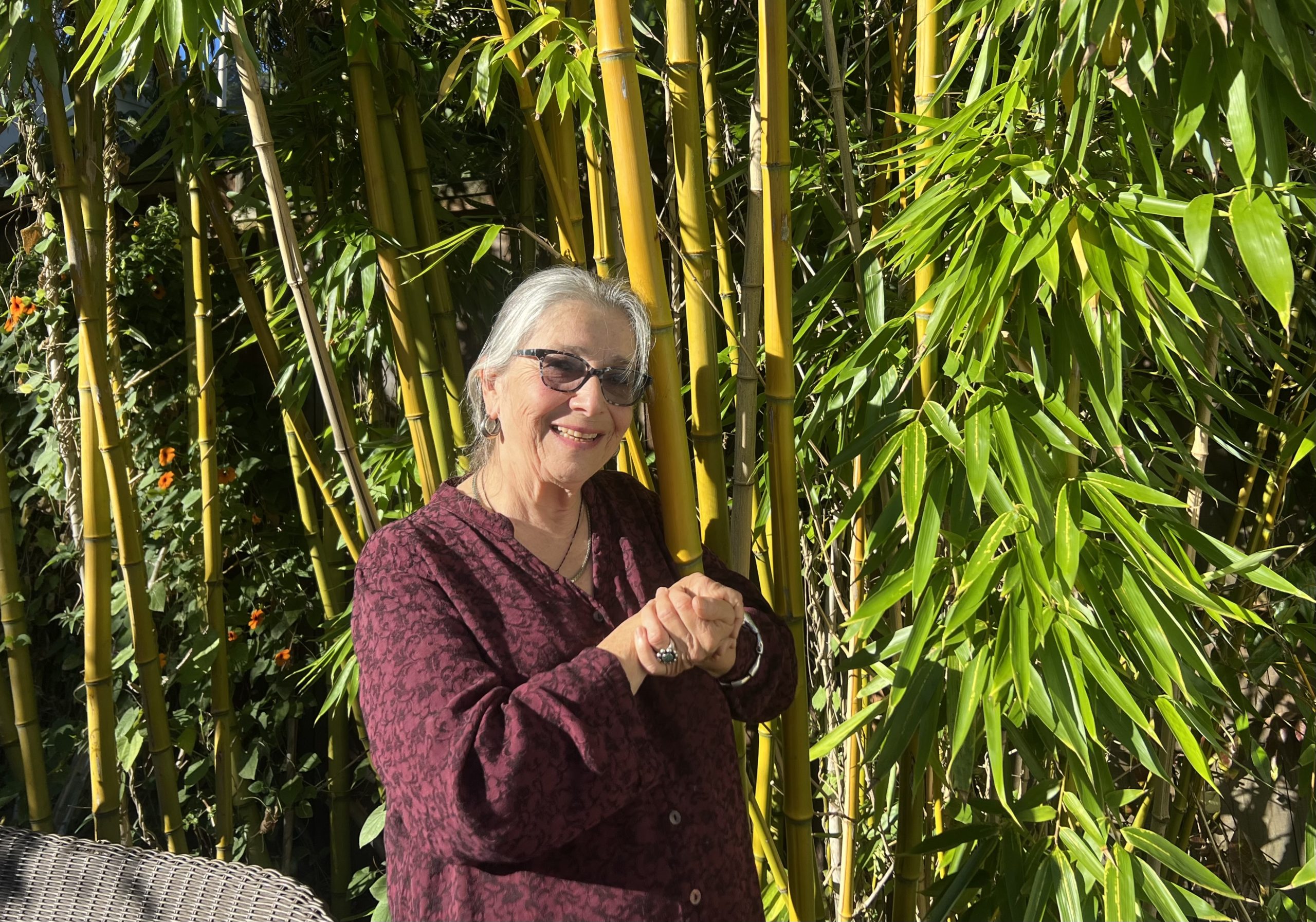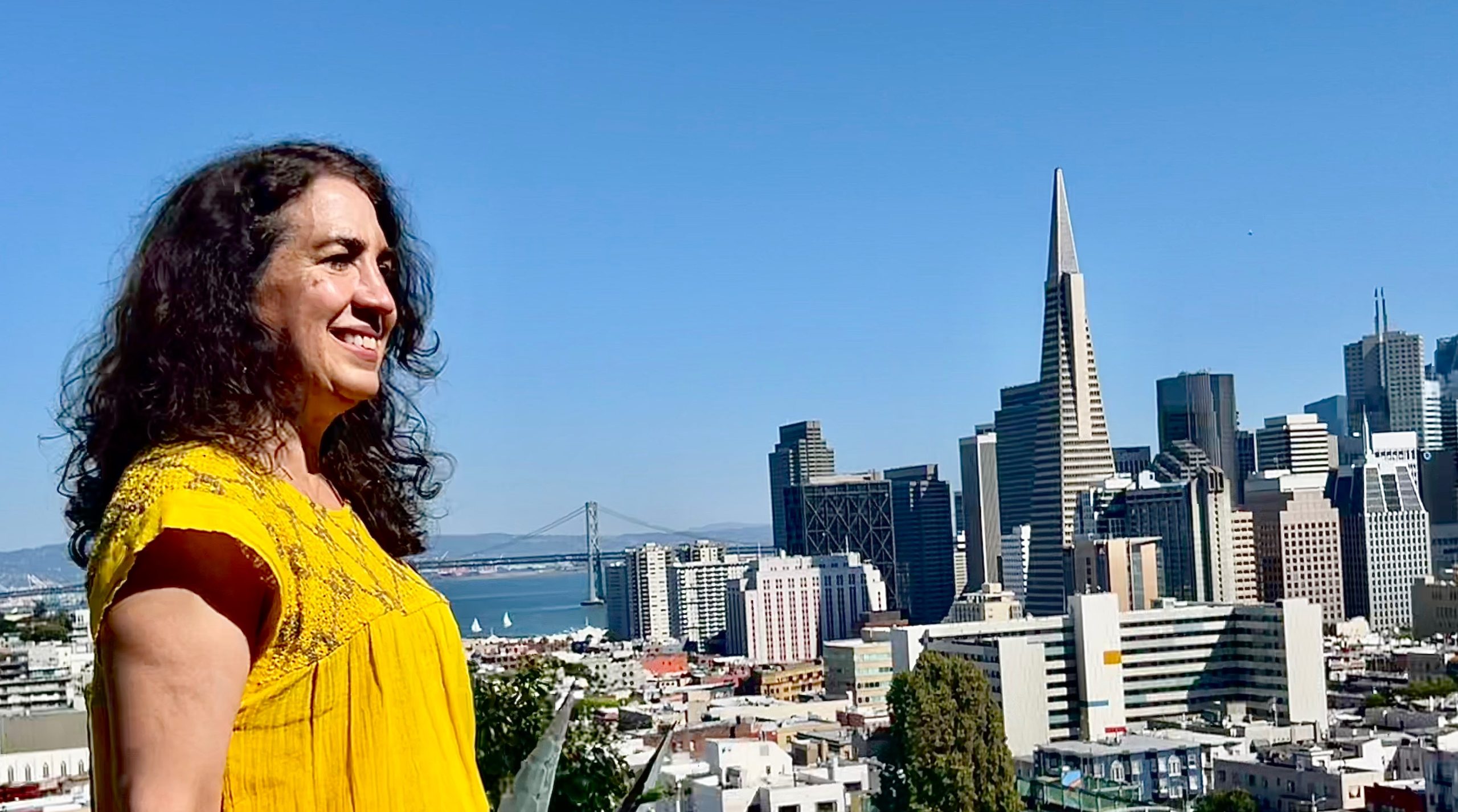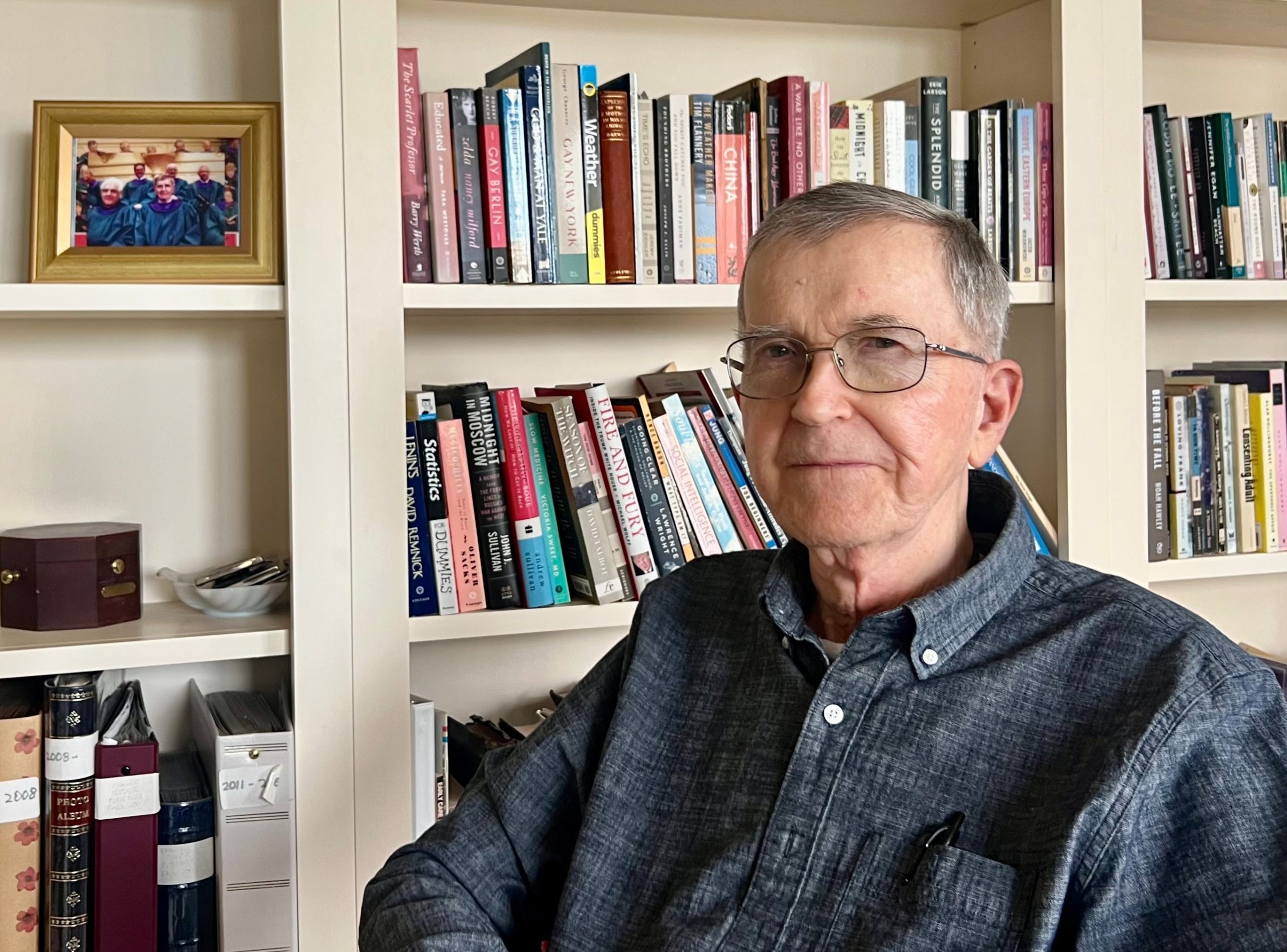Deciding ‘that’s not who I am,’ heavy drinker quits then uses his experience – of trauma, homelessness, addiction – to help others
It’s not quite six o’clock on a June morning in 2021, and the fire alarm was going off yet again in the building Paul Hickman had called home since 1996.
“Stay or go?” he asked himself, remembering the many times he wandered downstairs, responding dutifully to the frequent false alarms.
Then came a pounding on the door of his second-floor apartment and cries of “Fire! Fire! Fire.” He stepped into the hall, smelled smoke, and saw a disabled neighbor rolling down the stairs like a tumbleweed as his friend carried his wheelchair behind him.
His building, the Sierra Madre Apartments on the corner of Leavenworth and Ellis, was one of the oldest in the Tenderloin, according to its management, The Tenderloin Neighborhood Development Corporation (TNDC). It was built in 1912 and hadn’t been upgraded in 20 years.
Hickman grabbed his wallet and cell phone and galloped down to the sidewalk. The building was soon engulfed and destroyed, displacing 60 residents. The blaze started with an accidental fire in a neighbor’s kitchen. Fifteen people were injured, none seriously.

Living in the Tenderloin wasn’t always easy. Drug dealers were everywhere, he said. But his studio at the Sierra Madre was a huge improvement over the South of Market SROs he lived in for decades.
His new place offered him his own kitchen and his own bathroom. It was close to his job at the Curry Senior Center, where he worked as a peer counselor, visiting other seniors in the Tenderloin, combating their social isolation. It was a good fit. “I understand loneliness,” he said.
Hickman, now 74, has a wide smile and is often told he looks like Bill Cosby. “Young dudes in the shelter where I worked were always coming up to me, ‘Yo. What’s up, Bill?’” But his good nature belies a years-long struggle with alcohol.
He job-hopped around Boston for years and had a daughter, but his drinking made it difficult to maintain family relationships.
Ready for a change, he moved to San Francisco in 1995. “I had never really traveled much anywhere. There were politics going on at work, and something inside of me said, ‘why don’t you just get away for a while?’ So I took my last paycheck, didn’t tell anybody, and got on the Greyhound.”
Riots in the ‘hood
He was born in 1949 at Massachusetts General Hospital and raised in the projects in Roxbury by his father, a construction worker, and his mother. By the late 1960s, Roxbury had become a frequent battlefield. There were riots after the assassination of Martin Luther King in 1968 and more riots in 1974 amid Boston’s crisis over housing and desegregation.
Hickman, who is Black, remembers nimbly ducking to avoid a blow to the head from a cop’s billy club. “When MLK was killed, we went out in the streets; there were riots in Dorchester, Roxbury, Mattapan. I was almost beaten that day, but I was 19 and swift. Yes, the projects were tough; people doing drugs in the elevators. But they were home, and we had a community.”
When he moved to San Francisco, he recalls people saying to him, “you from Boston? Isn’t that a racist city?” But he answered, “there is racism all over.”
In 1971, at his mother’s urging, he joined Job Corps, a federally funded job training program. He was sent to Texas to learn the machinist’s trade, but that wasn’t for him. He left after a year and had a series of jobs in the Boston area, including a stint as an elevator operator at Schraftt’s candy factory and time on the assembly line at a Kodak factory. For about 10 years, he worked as a pantry assistant at the Ritz-Carlton Hotel. But the open bar for employees after closing worsened an incipient drinking problem, he said.
A turning point
He learned he was adopted when his mother told him his birth mother had been their neighbor. He was 20 when she came to find him. The news, he said, made him happy and he was glad to learn that he had a younger brother.

Hickman and his birth mother became friends, but his drinking worsened after his adoptive mother died. He had a daughter who was born on Christmas Day of 1973, but her mother wouldn’t let Hickman stay with them because of his drinking.
But he stayed in her life, taking her to movies and Celtics basketball games. They now have a good relationship although she lives in Boston.
By 1980, his drinking was out of control, and he started having blackouts. Once he woke up in the subway station with no idea how he got there. “One day I looked at myself in the mirror, all bloated and bleary, and said to myself ‘Paul that’s not you.’”
On July 7, 1981 – he remembers the exact date – he entered a treatment program. After six months of sobriety, he was asked what he’d like to do next: “I thought about it, and I said I want to give back, help people get clean,” he said.
He was offered a job at the Pine Street Inn, the biggest homeless shelter in downtown Boston. “That’s how I learned to work in social services — on the job.”
He started as a shelter monitor, checking people in and out, ensuring safety, breaking up fights, and enforcing the curfew. Later, he was promoted to residential counselor.
At times, he worked in the outreach van from 5 p.m. to 8 a.m., locating people under bridges, outside in the dangerous winter freeze: “We had blankets and hot coffee to try to convince them to come in from the cold.”
But he was growing weary of the stress and the politics of the workplace. A former supervisor had moved to San Francisco, so he thought he would look her up.
He had paid his dues, working almost 14 years in Boston’s sweltering summer days and bitterly cold nights, gaining the experience and skills that served him well in San Francisco.
Social services work
“I got off the bus here in ’95, and at that time the YMCA had rooms for $35 a night. I stayed there till my money ran out,” he said. He applied for General Assistance, which gave him the choice of cleaning the streets or bus shelters or looking for a job. “Of course, I wanted a job.”
Hickman was hired as a shelter monitor at the Marion Residence, a women’s shelter at St. Anthony’s, and has worked in social services in the city ever since. At the Felton Institute, he worked with seniors and disabled people.
“What I have to offer is lived experience – of trauma, homelessness, addiction. I share my lived experiences with other people, and try to encourage them, as best I can.”
When he’s not working, Hickman loves Saturday morning matinees. Friends and co-workers call him “Movie Paul” and often ask him for quick reviews. He has his favorite restaurants: the Pork Store Café for breakfasts and the Woodhouse Fish Co. for fish and chips.
“I have two goals now: I want to keep my health, and I want to go back to Boston, to visit. I haven’t been back ever. My daughter calls me, and asks, ‘you coming home for my birthday this Christmas?’ And I want to say yes, but something is keeping me back, I don’t know….” His voice trails off.
He worked for the Curry Senior Center on Turk Street for a dozen years, but the pandemic pushed most of its activities online. Deciding Zoom meetings weren’t for him, he retired in 2020.
Emergency advice
The fire that destroyed his Tenderloin studio was a wrenching experience, but Hickman said he can’t believe how well things ultimately worked out for him. The Tenderloin Neighborhood Development Corporation found new apartments for all the residents, and Hickman loves his new Howard Street apartment.
The TNDC gave all the displaced residents $10,000 to replace clothes, dishware and other necessities, and his former coworkers started a GoFundMe campaign for him that raised enough money for furniture, a new mattress and other household items.
Last March, he came out of retirement to accept a part-time job with the San Francisco Community Living Campaign as an emergency preparedness connector. Hickman, a man forced out of his home by a fire, is now educating and informing seniors how to develop an emergency plan in case of an earthquake, power outage, flood, or, of course, fire.
You can find him dispensing advice at CLC tables at farmers’ markets, Sunday Streets or various senior centers, libraries, or community events.
“You gotta have a plan,” he said. “You gotta have a ‘to-go’ bag with your medications, your dentures, glasses, your phone, contact information for your family, your shoes.
“Now I tell people, ‘Hey, you never know when you are going to have to get out fast.’ Take me, I didn’t have a plan, I had no clue. I was left with nothing. When I give out emergency preparedness info, I am still using my lived experience to help others.”





